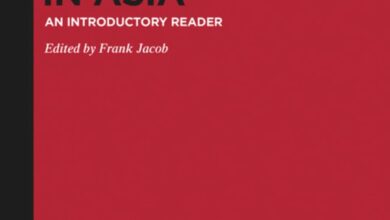Pakistan – A Step in the Right Direction – Monday 21 December 1970 – Time Magazine
Pakistan – A Step in the Right Direction
Monday 21 December 1970
Time Magazine
MuktiJuddho e-Archive Collection
When Pakistan became independent in 1947, Britain bequeathed it a parliamentary system. Not until last week, however, did Pakistan’s rulers get around to adopting a feature normally associated with such a system: nationwide general elections. From the rugged Khyber Pass at Afghanistan’s doorstep to the Chittagong Hills near the jungles of Burma, some 40 million voters turned out at polling places. Despite their newness to the process, they seemed to know exactly what they wanted. Picking their way through the conflicting claims of 20-odd parties, they gave an overwhelming endorsement to only two of them, thereby laying the foundation for what could become a stable, two-party system. They also established the leaders of the two parties as politicians to be reckoned with for some time to come in the world’s fifth most populous (130 million) nation. They are East Pakistan’s Sheik Mujibur Rahman, 48, head of the Awami League, and West Pakistan’s Zulfikar Ali Bhutto, a former Foreign Minister and head of the Pakistan People’s Party.
Elite Electorate. If Pakistan was slow to adopt the vote, it was because of the turmoil that has embroiled the nation for all of its 23 years. Until 1958, Parliaments were indirectly elected. After Field Marshal Mohammed Ayub Khan seized power in that year, an elite electorate of village leaders and landowners, eventually numbering 120,000, was selected to choose a National Assembly. Nearly two years ago, Ayub stepped down amidst bloody rioting as Pakistanis demanded basic social reforms such as a popularly elected parliament and an improved educational system.
Army Commander Agha Mohammed Yahya Khan took over and promised a return to democracy as soon as conditions were right. Unlike many another strongman, he apparently means to keep his word. Last week’s elections were held to choose delegates to a constitutional convention. When the delegates meet in January, they will have 120 days to draft a document that meets Yahya’s approval. If they fail, he will order new elections; if they succeed, they will stay on as members of a 313-seat National Assembly.
A Pledge of Purbodesh. The big man at the constitutional convention will be “Mujib” Rahman, whose Awami League captured all but two of the 153 seats contested in East Pakistan. Seven East Pakistan seats reserved for women and nine more seats in the cyclone-ravaged coastal areas will be decided in a few weeks. The Awami League is virtually certain to win all 16, pushing its total in the projected National Assembly to a commanding 167.
Mujib’s campaign was based on a pledge to win purbodesh, or regional autonomy, for the 72 million Bengalis of East Pakistan. For making the same demand in 1966, he was jailed for 33 months by Ayub. But purbodesh is the overriding issue in the area−for good reason. Pakistan is an improbable wedding of the Middle East and Southeast Asia, with 1,000 miles of Hindu India in between. In the dominant but less populous West are the tall, lightskinned, Punjabis. Pathans and Sindhis who speak a different language from the slight, dark Bengalis of the East and eat wheat and meat instead of rice and fish. The Punjabis, who dominate Pakistan’s civil service, have always treated the Bengalis like poor relations, controlling the central bureaucracy and keeping the bulk of the tax money and foreign aid to themselves.
Grand Coalition. Mujib’s cause therefore had many believers. Yahya has already assured Mujib of “maximum autonomy” for the East. This will give the Bengalis complete control over their economic planning and budget. Yahya insists, however, that the central government, located in the West at Islamabad, retain power over taxation, defense and foreign affairs.
Bhutto’s spectacular showing against 19 other parties in West Pakistan was a surprise even to himself. His background as scion of a powerful landowning family from Sind province and his former friendship with Ayub were strong handicaps. But he overcame them with compelling oratory and personal magnetism. Besides, Ayub threw Bhutto in jail for three months toward the end of his rule. Campaigning on the seemingly contradictory slogan “Islam, socialism, democracy,” Bhutto promised drastic land reform and the nationalization of key industries, actions that would affect his own wealth. His left-wing People’s Party swept 82 of the 138 seats so far decided and is assured of winning the six seats reserved for women.
Assuming that the constitutional convention is eventually transformed into a new Assembly, Mujib could control it with the Awami League’s delegates alone. Most observers believe, however, that for the sake of unity Mujib and Bhutto will form a grand coalition, on the pattern of West Germany’s Christian Democratic-Socialist combinations of past years. To be sure, basic differences would make this rough going, particularly in foreign policy. Mujib is basically pro-Western, while Bhutto flirted with China when he was Foreign Minister. Moreover, Bhutto is dead set against dealing with India, while Mujib would like to normalize relations.
Whether or not they work well together, the two are likely to be working closely. The odds are that Mujib would become Prime Minister and Bhutto Deputy Prime Minister under a largely ceremonial President. Mujib certainly thinks so. When a correspondent asked him last week whether he could be congratulated as the future Prime Minister, Mujib replied archly: “You are naughty.”

